SEACAP 4 SDG transfers knowledge on public building renovation through a Living Lab approach (phase II)
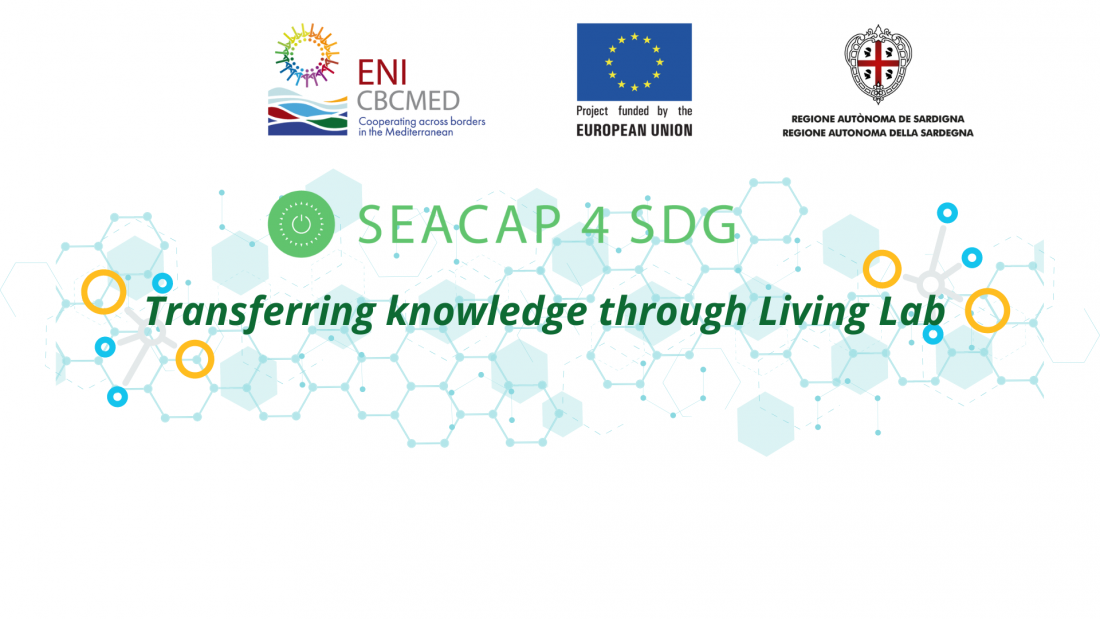
The SEACAP 4 SDG project aims to contribute to fighting climate change by reducing energy consumption in public buildings across the Mediterranean. It does so by the capitalization of a number of outputs and outcomes from Selected Reference Projects (SRP) financed within different EU Initiatives (ENI CBCMED, INTERREG MED, UfM).
One of these outputs is the Mediterranean Cross-Border Living Lab (MCBLL) developed within the MED-ECOSURE project. This methodology aims to develop physical and virtual tools to stimulate participatory processes, supporting university building managers with predictive tools and enhancing their capacity to plan and implement sustainable energy mix strategies and technologies in Mediterranean.
This training programme is currently underway through the establishment of the SEACAP Living Lab (SLL) and includes two levels:
- Training for the benefit of the project partners and local experts on Selected Reference Projects (SRPs)
- Training on how to develop and implement a SEACAP through a Living lab approach for the benefit of the Local Implementation Team of the project in a first phase which will conduct the same training at each local level for the beneficiary municipalities and cities.
The training will provide the cities/municipalities representatives as well as other members of the Living Lab with the basic knowledge and tools that will allow them to develop comprehensive, realistic, and dynamic action plans, while addressing local specific challenges in the framework of a Living Lab.
The second phase of the training programme took place last 23rd and 26th of January 2023 with a Cross-Border SLIT training, delivered by the University of Patras (UPatras) and Mediterranean Renewable Energy Centre (MEDREC), both main partners of the SEACAP 4 SDG Project.
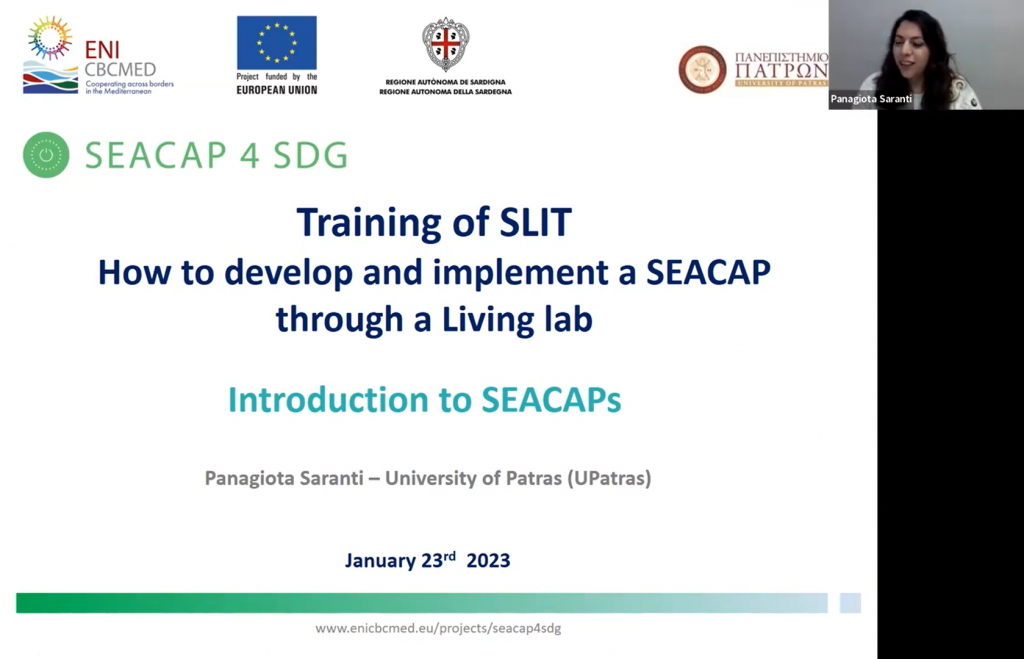
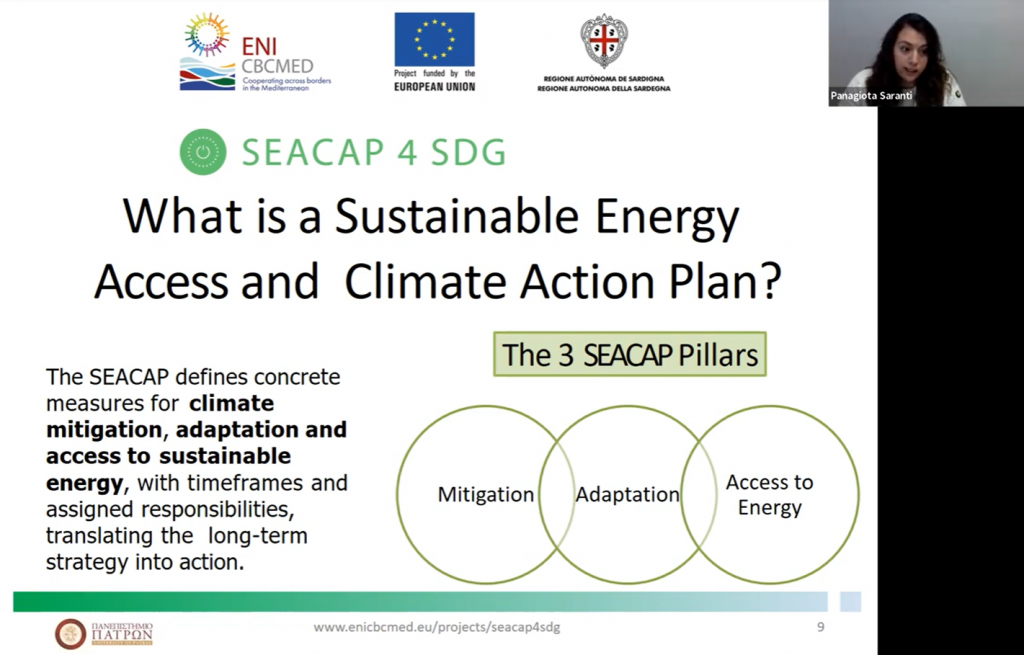
During the first session, Ms. Panagiota Saranti (UPatras) together with Ms. Souha Ferchichi (MEDREC) introduced the SEACAP (Sustainable Energy Access and Climate Action Plan) and the methodology to develop and implement it through a Living Lab.
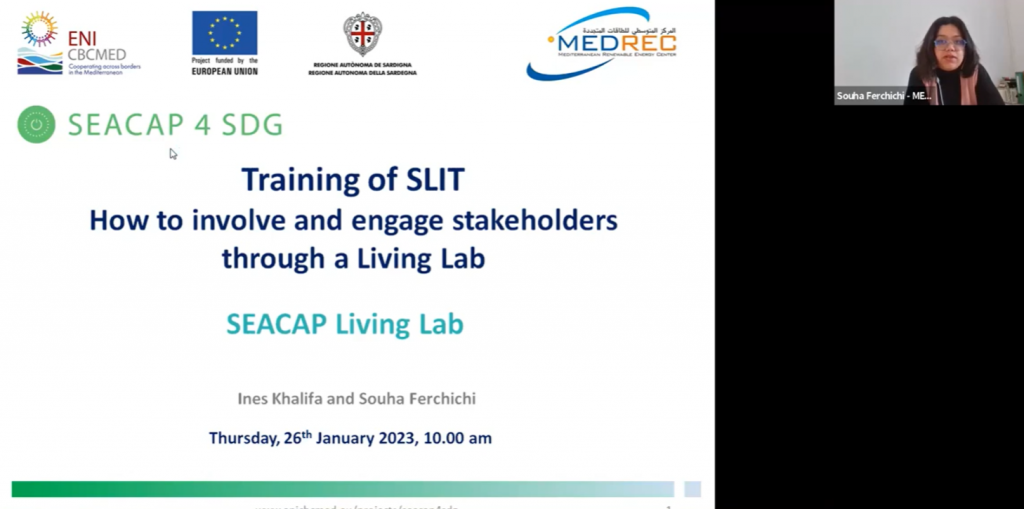
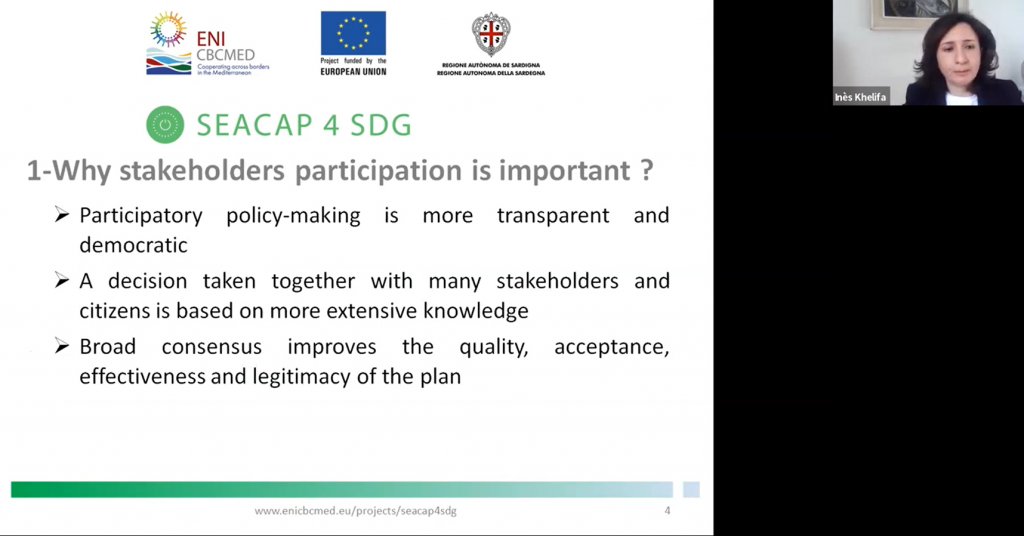
The second session was held by Inès Khalifa (MEDREC), who discussed how a Living Lab can be an asset for stakeholder and citizen involvement and engagement, stimulating and implementing networking activities and project impact.
Next step will be the organisation of the Local Living Lab to be delivered by the SE(A)CAP Local Implementation Team (SLIT) in the coming weeks to conduct the training at a local level.
If you are interested to learn more about the project Living Lab and join the community, you are welcome to fill out the SURVEY.









